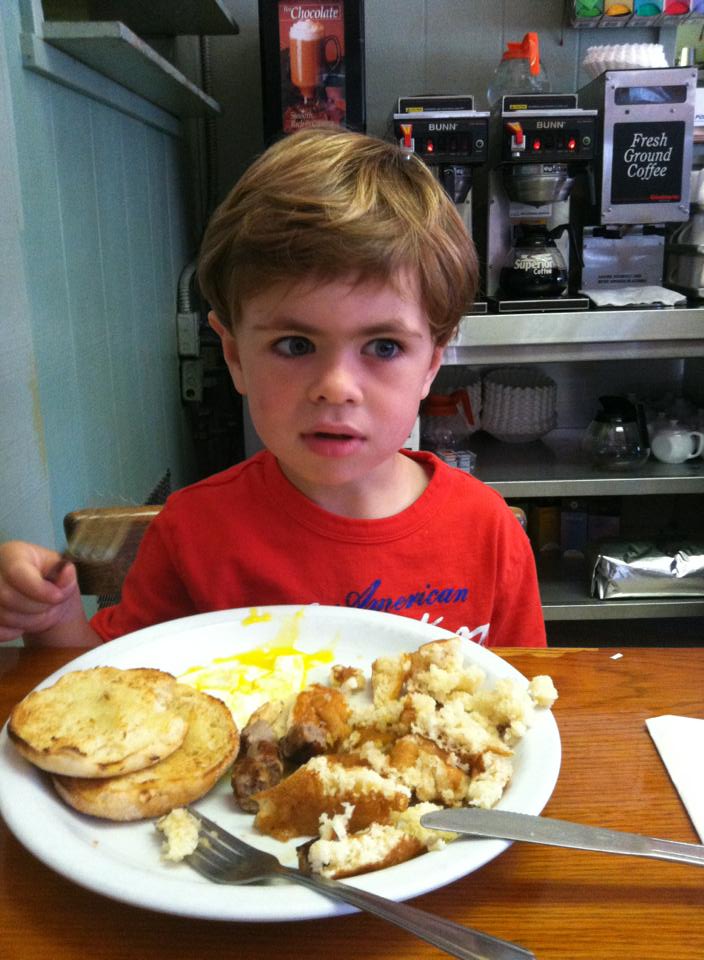There’s a moment in Philip Kaufman’s brilliant 1978 remake of “Invasion of the Body Snatchers” when the authorities—now fully taken over by pod people from outer space—attempt to reassure the remaining real humans that “people are getting back to normal.” But they’re not normal. They’re blank, emotionless automatons–human in exterior form only.
I’m starting to wonder if our post-pandemic cities will be like that.
The thought crystalized a couple weeks ago, when a Glen Park News article confirmed what I’d feared when I walked by my favorite weekend brunch hangout recently and saw it unexpectedly shuttered: Tyger’s Coffee Shop is closed. After a year of struggling through the pandemic with business drastically reduced, the longtime owners decided at the end of March to pack it in and retire. Even with the end of the pandemic at least in sight if not quite here, they couldn’t tough it out any longer.
Damn.
Tyger’s was the quintessential funky American diner. It served hearty, simple food—omelettes, pancakes, big and juicy burgers—amid decor that looked like it hadn’t been updated since the Truman administration. Everyone there was friendly, and the food was both good and cheap. It felt like home. And now it’s gone, another little piece of old San Francisco put out with the trash.
The space will apparently continue to be a restaurant serving breakfast and lunch. Glen Park News reports that the son of the property owner, a graduate of New York’s Culinary Institute of America, will take over the space. They don’t have details about what the new place will be like, but report that the menu will be “more contemporary.”
The thought gives me the dry heaves.
I say that out of no disrespect to the new proprietor, who I’m sure is a perfectly fine person with good intentions. His restaurant may well be excellent. But it won’t be Tyger’s, even if he keeps the name. And let’s face it: San Francisco has contemporary spots up the wazoo.
Help us save local journalism!
Every tax-deductible donation helps us grow to cover the issues that mean the most to our community. Become a 48 Hills Hero and support the only daily progressive news source in the Bay Area.
If you’re looking for a $25 artisanal, small-batch, pasture-raised, gluten-free salad, this town has plenty of options. But it no longer has so many funky, homey places like Tyger’s and It’s Tops, which closed last summer.
What will be left when the city reopens?

Don’t get me wrong. I’m not one of those who thinks cities should be museums, preserved in amber and frozen in time. Change can be healthy. I’m glad to see experiments like Slow Streets and parklets for outdoor dining, even if the rollout had some bumps. And I have no patience for those who cling to their single-family zoning and howl in terror at the thought that affordable housing might come to their precious neighborhood. Cities are living, breathing organisms and they need to change.
But, having grown up in LA—a city that trashes its past roughly as often as most people change socks—I’ve also come to appreciate San Franciscans’ desire to maintain some links with our city’s history. It is surpassingly cool to live in a town where people fought successfully to keep the cable cars and stop planned freeways from turning the whole place into a concrete monolith. Some things are worth preserving.
I fear we’re losing more than we realize. And yes, I know this isn’t limited to SF. All over the country, small businesses continue to struggle. Despite improving economic numbers overall, millions who had full-time jobs at the start of 2020 remain unemployed or underemployed, and the small businesses they patronized—even the ones not directly impacted by remaining COVID restrictions‚ are too often just barely hanging on, if they’re hanging on at all.
While a lot of effort and money has gone into providing relief for people and businesses, it hasn’t been enough, and the changes resulting from this rolling economic tsunami aren’t done yet. When life is back to “normal,” how normal will it be? Will we still have small, eccentric, one-off places like Tyger’s? Or will our cities be even more given over to Starbucks, Target, and Amazon delivery trucks than they already are?
Walking by the now-closed Tyger’s, I feel guilty. Since moving into nearby Mission Terrace in 2010 I’d been a three-or-four-time-a-month regular until the pandemic. Once they could only do takeout, and even when they were able to have a couple outdoor tables (but not many, due to narrow sidewalks and no feasible space for a parklet), my visits reduced to barely once a month, often less. And now it’s gone.
Intellectually, I do understand I’m not personally to blame. The world changed and we all adapted as best we could. No one had any fun doing it. But as something close to normality begins to come back—and as I write this, San Francisco has just moved into the state’s yellow COVID tier, meaning greatly relaxed restrictions—we’d better do all we can to hold onto what’s left.
The pod people haven’t fully taken over yet, but they’re getting closer. I hope we can keep them at bay.




